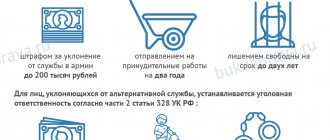Administrative liability for non-payment of alimony: what is it, types
Administrative liability means the “weakest” measure that is applied to the debtor for the following purposes:
- Warning of criminal liability. If the defaulter does not respond to the administrative punishment and does not begin to pay money for child support, the next stage will be a court verdict and a conviction under Art. 157 of the Criminal Code of the Russian Federation.
- Acceleration of debt repayment. Having received a warning from the bailiff or having experienced other administrative penalties, the alimony obligee will begin to more actively pay the debt. The speedy repayment of the debt is the key to removing the seizure of a bank account or restrictions on the use of a driver’s license (special right).
- Incentives for the timely payment of money for the maintenance of a minor. Payers brought to administrative responsibility, in most cases, try to avoid delays in the future.
If the punishment involves arrest or compulsory labor, the decision is made by the court. But bailiffs also have the right to take some measures: for example, if a debtor does not pay, they can seize his bank accounts
Procedure for collecting alimony payments
After the court decision to collect alimony comes into force, a writ of execution is drawn up and sent to the FSSP bailiffs for execution. Based on this document, by virtue of Article 30 of Federal Law No. 229, a resolution is issued to initiate enforcement proceedings and the same father is now obliged to transfer funds for the maintenance of the child to a special account on a monthly basis.
If a citizen evades paying alimony for at least 2 months, the bailiffs on their own initiative or at the request of an interested person, that is, the mother of the child, in accordance with Article 67 of Federal Law No. 229, can apply temporary restriction measures:
- when traveling outside the Russian Federation;
- to drive a vehicle.
Important: This measure is already possible if there is a debt exceeding 10 thousand.
Simultaneously with the introduction of restrictive measures, the bailiffs send notifications to the father’s place of residence about the existence of a debt and the obligation to repay it as soon as possible. At the same time, actions are taken to identify all the debtor’s income. That is, now not only wages and 25% of it are taken into account, but also the same bank deposits, real estate owned and other items of income of the debtor.
Also, by virtue of Article 99 of Federal Law No. 229, bailiffs have the right, in addition to alimony payments, to collect from a citizen the alimony debt, and at the same time, writing off up to 70% from the same salary card. At the same time, if it is established that there is other property, foreclosure may be applied to it to pay off the debt.
In addition to punitive measures, the FSSP establishes the circumstances of evasion of alimony payments, in particular:
- The debtor's residential address is specified. If he left his place of permanent residence and did not notify the bailiffs about the change of residence, an executive search is announced in accordance with Article 65 of Federal Law No. 229.
- Employment information is verified. If a citizen intentionally quit and did not register with the Employment Center to look for another vacancy, he is considered to have intentionally evaded payment.
- Additional sources of income for the debtor are identified by sending requests to the tax office, traffic police, banks, Rosreestr and other authorities.
The above data is collected in order to confirm not only the fact of debt, but malicious evasion of alimony payments and the possibility of applying a more stringent sanction - administrative liability.
When can they be charged under 5.35.1 of the Code of Administrative Offenses of the Russian Federation?
The basis for prosecution under Art.
5.35.1 of the Code of Administrative Offenses of the Russian Federation is non-payment of alimony for more than 2 months from the date of initiation of enforcement proceedings, if the debtor does not pay them for unjustified reasons, violating the requirements of a court decision or alimony agreement. Previously, the bailiff may apply other measures of influence on the debtor:
- Restriction on the use of a special right (driver's license).
- Seizure of bank accounts.
- Wanted notice.
- Ban on leaving the territory of the Russian Federation.
The most important factor for attracting under Art. 5.35.1 of the Code of Administrative Offenses of the Russian Federation is the intentional nature of non-payment. If the debtor proves that he had valid reasons for the delay, he may be released from liability.
How to avoid paying alimony legally?
Exemption from alimony payments and preparation of a statement of claim
Prohibition to leave the country
In addition to deprivation of parental rights and the ability to drive a vehicle, for failure to pay child support they may also be prohibited from crossing the Russian border. The effect of the law is set out in Article 67 of Federal Law No. 229. This is one of the most common measures of liability, which begins when the amount of debt exceeds 10,000 rubles, as well as the presence of debt for more than 3 months. Involvement in such a restriction is carried out by a bailiff, who transfers the approved resolution on the ban to the border control authorities. If the debtor urgently needs to leave the country, he does not have the right to repay the entire amount of the debt on the spot and lift the restriction. This can only be done by contacting the FSSP.
Administrative penalties
In July 2021, changes were made to the Code of Administrative Offenses of the Russian Federation and a new article was introduced - 5.35.1. It provides for administrative liability of parents who evade paying alimony for minors or disabled children, unless the offense contains elements of a criminal offense.
Stipulated penalties:
- up to 150 hours of compulsory work;
- up to 15 days of administrative arrest.
If the violator cannot be subject to administrative arrest by law, he will have to pay a fine of up to 20,000 rubles.
These persons include:
- minors;
- pregnant women;
- persons raising children under 14 years of age;
- disabled people of groups 1 and 2;
- military personnel, employees of the Ministry of Emergency Situations, the Ministry of Internal Affairs and other government agencies.
According to the Russian Federation GD dated December 12, 2014 No. 1358, citizens suffering from severe acute chronic diseases or diseases contagious to others are not subject to arrest.
Even with a one-time failure to pay, the alimony obligee may be held accountable. The reason is non-compliance with the requirements of executive documents (IL). Sanctions are provided for in Art. 17.14 Code of Administrative Offenses of the Russian Federation. The debtor faces a fine of 2,500 rubles.
Additional measures
In addition to prosecution under the Code of Administrative Offenses of the Russian Federation, other sanctions may be applied to debtors:
| Measure | Conditions of use | Additionally |
| Restrictions on the use of a driver's license | Applies to debt amounts greater than RUB 10,000. at the initiative of the claimant or bailiff. The resolution is sent to the traffic police, loses relevance after the debt is disputed or repaid | The measure is not prescribed if using a car is the only way to earn alimony |
| Ban on leaving the Russian Federation | Imposed on debts of RUB 10,000 or more. The FSSP resolution is sent to the border service authorities | Cancelled upon full repayment of debt. Without this, the person obligated for alimony will not be able to pass border control. |
| Wanted ad | Debt is more than 10,000 rubles. Copies of resolutions are sent to all government agencies. Further proceedings are carried out at the FSSP at the place where the debtor was found, the documents are transferred there | Cancellation is allowed upon complete liquidation of debts or discovery of the debtor |
Revocation of driver's license
One type of administrative liability is the deprivation of a defaulter’s driver’s license. The imposition of restrictions on driving a vehicle is set forth in Federal Law 229, Article 67.1. This method of punishment is used in the following cases:
- In case of non-payment of alimony, if the amount of debt exceeds 10,000 rubles;
- When a claimant applies to a bailiff with a request to impose administrative measures.
Cancellation of the order of the bailiff service and restoration of the driver's license occurs only in case of full repayment of the debt.
In fact, the driver’s license is not taken away from the willful defaulter; the bailiff simply submits information to the traffic police to limit the right of the child support payer to drive a vehicle and transmits all the necessary data. At the first appearance of an alimony debtor on the road, a traffic police officer gives him a warning and informs him about the entry into force of the FSSP order. If the parent continues to ignore these instructions, he will not only be given a fine, but may also be subject to forced labor.
Who can attract to the adm. responsibility
The initiator may be an interested person – the claimant.
The bailiff who discovered the elements of the offense also has the right. He is obliged to notify both parties in writing about the measures taken, draw up a protocol on the administrative offense and send it to the court. The claimant submits an application to initiate administrative proceedings to the bailiff, and not to the court. Before submitting an application, the claimant is advised to do the following:
- Check with the bailiff what measures he took previously (arrest, search, etc.). This right is provided under Federal Law No. 229.
- Try to negotiate with the debtor peacefully. If he pays the debt with a penalty voluntarily within the agreed time frame, he will not have to collect the money through the court.
In most cases, it is possible to reach an agreement with those obligated to pay alimony, since this is primarily in their interests. If the debt is not repaid or the payer does not make contact, you should act through the bailiff.
How to bring to administrative responsibility: step-by-step instructions
The algorithm for bringing to administrative responsibility for non-payment of alimony was drawn up in accordance with the Letter of the FSSP dated 07/05/2016 No. 0043/16/60663-SVS and Federal Law No. 229:
- The bailiff, within two months after the initiation of the IP, takes measures to forcibly withhold alimony and fulfill the requirements of the enforcement documents.
- If payment is not made for more than two months, the debtor is summoned to the FSSP to give an explanation. If there are no valid reasons, a protocol is drawn up and the case is sent to court.
- Proceedings are carried out in court within the framework of the Code of Administrative Offenses of the Russian Federation. The case is being prepared for consideration in accordance with Art. 29.1. Code of Administrative Offenses of the Russian Federation.
- The court's decision to prosecute is made two months from the date of receipt of documents from the bailiff. Extension of deadlines is allowed, but not more than one month.
If administrative arrest is used as a punishment, the case is considered on the day the protocol is received by the court. When a citizen is detained, a court order is issued no later than 48 hours from the moment of his arrest.
The claimant himself has the right to file a statement of claim in court, but only with a demand for the collection of a penalty. To do this, you need to collect all evidence of non-payment and proceed as follows:
- Order from the bailiff a decree on debt settlement. It will reflect when the last payment was made, the total amount of debt and the period of non-payment.
- File a claim and submit it to the district court. The claims indicate the collection of a penalty - 0.1% of the total debt for each day.
- Obtain a court decision and IL.
Where to contact?
If you need to be held accountable, the application should be submitted to the bailiff who initiated the proceedings. To collect the penalty, you will have to go to the district court.
How to make an application to the FSSP
There is no unified application form to the FSSP for prosecution. To fill it out, you can use a current example:
Sample application
Documentation
To initiate an administrative case, the claimant must provide the bailiff with a written application and a passport. It is recommended that you first order a resolution to calculate the debt in order to understand how much money the person obligated for alimony owes. IL and a child’s birth certificate will not be needed - copies of them are already in the production materials.
Terms of consideration and attraction
The claimant's application is considered by the bailiff within 10 days from the date of receipt. During this time, a decision is made to transfer the case materials to the court.
The consideration in court is carried out within 15 days. If detention is applied, the decision is made no later than 48 hours (Article 29.6 of the Code of Administrative Offenses of the Russian Federation).
Features of attraction
The application of a fine for non-payment of alimony to alimony debtors has a number of features. Let's list them:
- A fine is applied only when it is not possible to impose arrest or compulsory labor. In fact, it turns out that pregnant women, disabled people, military personnel, and employees of other law enforcement agencies, directly specified in the Code, are subject to fines. All others may be prescribed other measures above.
- The fine applies only if a 2-month delay was committed by the debtor without good reason. If there are extenuating circumstances and the bailiff is presented with a document indicating them, the fine is not applied to the defaulter.
- In case of non-payment of the fine, its size is doubled.
Grounds for exemption from liability
The debtor may be released from liability if the debt arose not through his fault or there are good reasons:
- Serious illness during the period of non-payment, stay for treatment in a medical institution.
- Dismissal due to downsizing or liquidation of an enterprise.
- Difficult family circumstances that require large financial investments.
- Receiving disability.
The list of reasons is not exhaustive. Situations are considered by bailiffs and courts individually. Based on the results, the debtor may be required to repay the debt within the established time frame or pay in installments.
As evidence of valid reasons, you will have to provide a certificate of disability, an ITU conclusion, a certificate from the Employment Center or another document confirming the existence of grounds for exemption from liability under the Code of Administrative Offenses of the Russian Federation.
Arbitrage practice
If there are clear signs of an administrative offense and there are no valid reasons, as a result of legal proceedings, debtors are most often prosecuted under Art. 5.35.1 of the Code of Administrative Offenses of the Russian Federation, and the statements of the claimants or the petitions of the bailiffs are satisfied. Confirmation – extensive judicial practice:
- The bailiff drew up a report and submitted it to the court. The man did not pay child support because he did not know what details to use to transfer it. By a resolution of July 13, 2021, in case No. 5-471/2017, he was found guilty and sentenced to 20 hours of mandatory work.
- The man did not pay child support, believing that unemployment was the basis for non-payment. By resolution of July 13, 2021, in case No. 5-602/2017, compulsory work was imposed for 80 hours.
- The man periodically did not pay child support in full, and a debt arose. Based on the Resolution of July 6, 2017, in case No. 5-571/2017, he was arrested for 15 days.
The procedure for collecting alimony
If the child’s father does not pay alimony voluntarily (by agreement), then, according to the norms of family law, it is collected by the court (Article 106 of the RF IC). To do this, a person who has the right to receive alimony must file a claim with the court for the recovery of alimony, regardless of the period that has passed since such a right arose (Article 107).
If the alimony holder evades fulfilling his duties in the presence of a court decision to pay alimony, then the recipient must contact the bailiff service, which ensures the execution of court decisions. We'll talk about this further.
Responsibility for further non-payment of alimony
If, after being brought to administrative responsibility, the person receiving alimony continues to accumulate debts, and the debt is formed again within 3-4 months, the bailiff issues a warning about criminal prosecution under Art. 157 of the Criminal Code of the Russian Federation. The following measures apply here:
- Up to 1 year of correctional or forced labor.
- Arrest up to 3 months.
- Imprisonment for up to 1 year.
The punishment is specified in the court verdict after the proceedings. The initiator is the claimant: he submits an application to the bailiff, who takes procedural measures in accordance with Federal Law No. 229. After this, the bailiff submits the documents to the court.
How to avoid administrative liability when paying alimony?
There are several ways to avoid liability:
- Start paying off the debt before the case file is sent to court. Also, the administrative case may be terminated during the consideration in connection with the voluntary repayment of the debt, if the collector does not mind.
- Provide evidence to the bailiff or court of valid reasons.
If the court takes the defendant’s side, the application will be denied, but they may also be given time or an installment plan to pay off the debts.
Lawyer's answers to private questions
Will administrative punishment get rid of the payment of arrears of alimony?
No. Execution of punishment does not relieve debt obligations. After serving the sentence, the payer will have to pay the debt within the established time frame - they are determined individually depending on the situation.
Is the organization at the payer’s place of employment subject to administrative liability for late payments and debt formation?
Yes, such liability is provided for in Part 3 of Art. 17.14 Code of Administrative Offenses of the Russian Federation. Sanctions include a fine of up to 20,000 rubles. for officials, for legal entities - up to 100,000 rubles. If administrative measures have no effect, Art. 315 of the Criminal Code of the Russian Federation. According to the RF IC, an IL or alimony agreement can be transferred to the accounting department at the payer’s place of employment. Alimony must be paid monthly within 3 days after salary. The obligation rests with the accountant, and in the absence of one, with the employer. What measures can the claimant take:
- Contact the company to find out the reasons for non-payment. If an organization is in bankruptcy and experiencing a financial crisis, collecting funds will be problematic. The procedure is decided through an arbitration court, and only after a decision on insolvency is made will the debts be paid. Alimony is a priority payment, but for its deduction the employee will need to receive a salary.
- Submit to the manager of the alimony payer an application demanding repayment of the debt. A certificate with the calculation can be obtained from the bailiff.
- If alimony is not received after measures have been taken, you should file a complaint with the bailiff. Only he has the right to make a decision on the commencement of administrative proceedings. To prove non-payment of alimony, a bank account statement is provided, to which it should be received according to the IL.
Deprivation of parental rights
Deprivation of parental rights is a severe punishment for failure to pay child support. Unlike a fine, which is easy to pay, restoring parental rights here is quite difficult and few succeed. According to the articles of Family Law, deprivation of a parent’s rights to a child can hardly be called a liability; it is rather a consequence of his negligence, not only in material terms, but also in moral terms. After all, a father is deprived of parental rights most often when he:
- Ignores mother's requests for financial assistance;
- Does not participate in any way in raising his child;
- Does not comply with the mother's requests related to the minor child;
- Does not maintain contact with either the child or the mother;
- He is not interested in the fate of the child and his health.
This list is not exhaustive. But you must understand that depriving parental rights is not so simple and just going to court will not be enough. This responsibility refers specifically to malicious evasion of parental responsibilities, which must be confirmed in court with various evidence. As for the alimony payer himself, he should know that deprivation of parental rights does not relieve him of the obligation to pay alimony.
The rules for depriving a parent of rights to a child when evading alimony payments are set out in Article 69 of the Family Code. But, as practice shows, just one reason in the form of malicious non-payment of alimony is not enough; a whole range of claims is required from the mother who lives alone with the child.
According to the above, it becomes clear that deprivation of parental rights does not entail criminal liability or the imposition of fines, however, it cannot be considered that this is the mildest way of applying punishment as a result of the formation of a child support debt. On the contrary, after deprivation of parental rights, the father is still obliged to continue to pay alimony, but at the same time he loses all rights to the child and in the future will not be able to participate in his life in any way and claim alimony for himself in old age.




